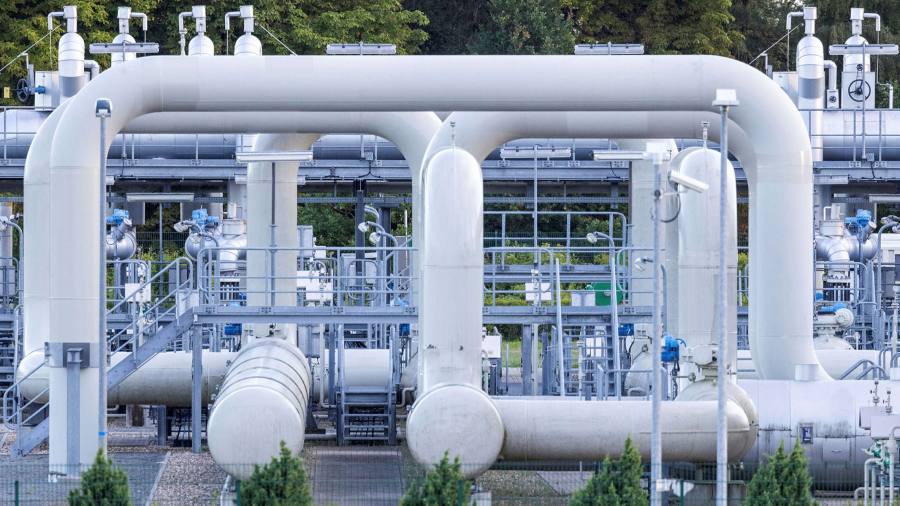Russia cuts gas deliveries to Europe via Nord Stream 1
Russia will cut gas supplies through its largest gas pipeline to Germany to just a fifth of capacity later this week, threatening to leave the continent short of critical supplies ahead of winter.
State energy group Gazprom said it would halve existing throughputs on the Nord Stream 1 gas pipeline to just 20% of capacity from Wednesday, after already lowering them to 40% last month. European politicians have denounced the “arming” of Russia’s gas supply.
Gazprom’s move came as German business confidence fell to its lowest level in more than two years in the latest sign that Europe’s biggest economy is on the brink of recession.
Businesses across Germany have become gloomier about their current situation and outlook for the next six months, according to the closely watched Ifo Institute’s business confidence index. Second-quarter gross domestic product figures released on Friday are expected to show growth of just 0.1%, according to economists polled by Reuters.
Germany has been hit hard by inflation and the Russian gas crisis. Gazprom blamed turbine availability for its supply cuts, but a spokeswoman for Germany’s economy ministry said there was “no technical reason” for the cut.
European capitals will interpret Gazprom’s action as Russian retaliation for sanctions imposed after its invasion of Ukraine. Europe is already struggling to fill gas storage facilities, leading to rationing warnings for industry and worries about shortages for domestic users.
Tom Marzec-Manser of consultancy ICIS said that if the latest Russian supply cuts were to last, they would require additional efforts from European governments “to incentivize demand cuts, particularly from the sector. industrial”.
Gazprom attributed the volume reductions to problems with turbines serviced by German Siemens Energy at a plant in Canada. However, Berlin and gas market analysts say Russia is using the issue of turbine repairs as a pretext to cut flows.
European politicians and industry analysts have wondered whether such problems would lead to such a steep decline in gas flows. Russia has also refused to use alternative pipeline routes to maintain supply.
Laurent Ruseckas, an analyst at S&P Global Commodity Insights, said Gazprom’s move was part of a “pattern that has been on display for months and months, which continues to reduce pipeline flows to keep supplies tight and complicate the storage”.
Gas prices in Europe soared after Gazprom signaled that the volume of gas flowing to the continent would be reduced. They rose 10% on Monday to trade at €177 per megawatt hour, five times higher than a year ago.
Gas flows will drop to 33 million cubic meters per day of gas from 4 a.m. GMT on Wednesday, Gazprom said, from a total capacity of more than 160 million cubic meters and half of current flows. Gazprom resumed partial gas supply via NS1 last week after a scheduled outage for repairs.
Russia’s gas monopoly said on Monday it was cutting throughput because it was shutting down another turbine for maintenance, following a threat from President Vladimir Putin last week to cut volumes.
Europe feared that Russia would completely halt its gas exports, leading the European Commission to tell EU member states to cut their consumption by 15% over the winter.
EU capitals have pushed back on the plan and ambassadors in Brussels have struggled to reach a deal to be signed by energy ministers at an emergency meeting on Tuesday.
“There is no plan B,” a senior EU diplomat said of the significance of the gas cuts deal. “It is important for us to show that the EU stands united in these difficult times and that we are ready for the worst-case scenarios.”
Gazprom blamed Siemens Energy, the turbine supplier, for the problems. He said the company still had “open questions” over UK and EU sanctions.
Canada this month lifted sanctions-related restrictions on supplying equipment to Gazprom to allow the turbine to return to the company.
Additional reporting by Joe Miller in Frankfurt and Alice Hancock in London


Comments are closed.